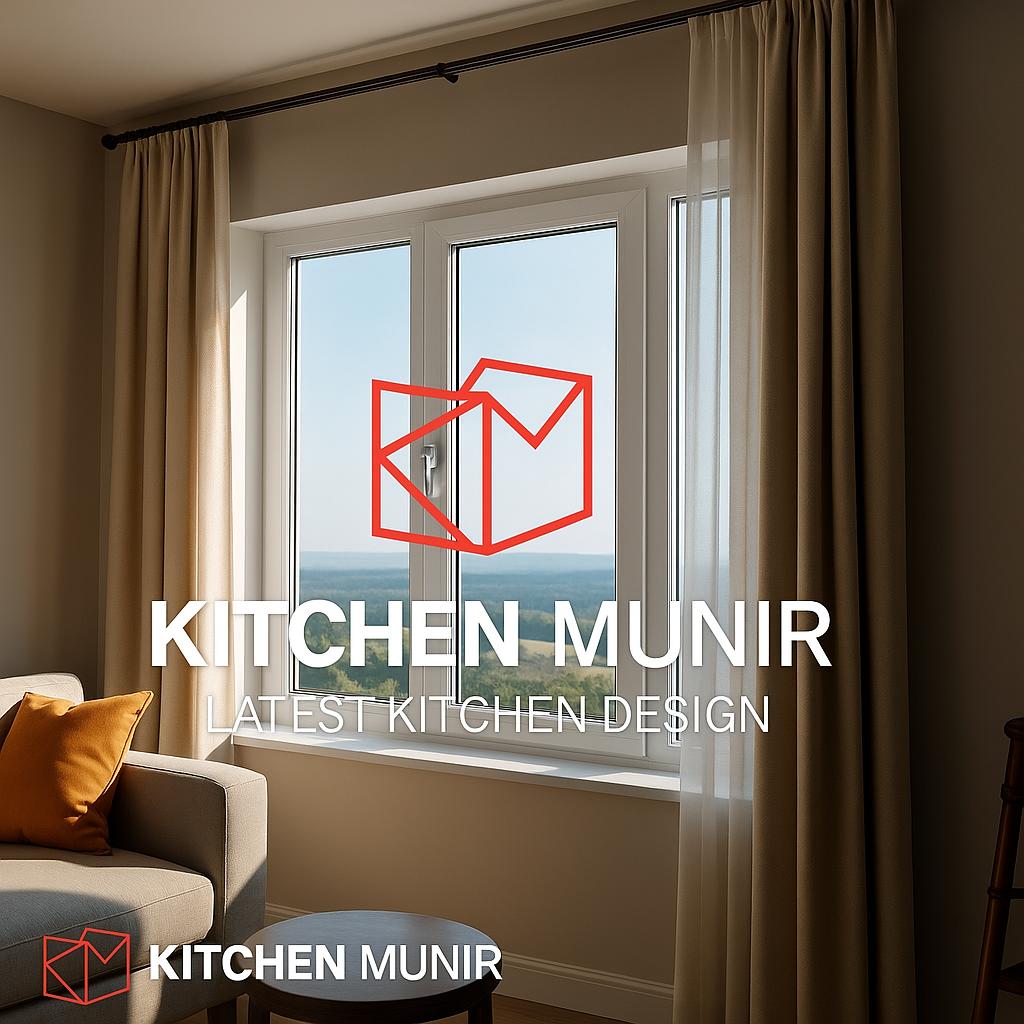🏠 When Should Doors and Windows Be Replaced? A Complete Homeowner’s Guide
Doors and windows play a crucial role in your home’s comfort, security, energy efficiency, and aesthetic appeal. But like any part of a house, they don’t last forever. Over time, exposure to weather, wear and tear, and outdated designs can make replacement necessary.
In this article, we’ll explore the key signs that it’s time to replace your doors and windows, why timely replacement matters, and how to choose the right materials and styles for your home.
🔹 1. Difficulty Opening or Closing
If your doors or windows stick, jam, or refuse to close properly, it’s more than just an annoyance — it’s a sign of structural issues.
Possible Causes:
-
Warped frames due to moisture or temperature changes
-
Worn-out hinges or tracks
-
Poor installation or settling of the house foundation
Why Replacement Helps:
-
New doors and windows restore smooth operation
-
Prevent unwanted air and water leaks
-
Improve security and daily convenience
💡 If you’re constantly forcing a door or window to close — it’s time for a replacement.
🔹 2. Drafts and Air Leaks
Feeling a draft even when windows and doors are closed? That’s a major sign they’re no longer sealed properly.
Consequences:
-
Higher energy bills due to heating or cooling loss
-
Reduced indoor comfort
-
Increased humidity and condensation
Solution:
Replacing them with energy-efficient models with weather stripping and insulated glass can significantly improve your home’s energy efficiency.
🔹 3. Visible Damage or Decay
Cracks, rot, rust, and broken glass not only affect appearance but also compromise safety.
Signs You Need Replacement:
-
Rotting wood or corroded metal frames
-
Broken or foggy glass panes
-
Peeling paint or warped frames
Why It Matters:
Damaged frames can let in moisture and pests, and weaken the structure of your home.
🧱 Replacing them early prevents bigger repair costs later.
🔹 4. Noise Problems
If you can hear traffic, neighbors, or outdoor noise clearly inside your home, your doors and windows might have lost their insulation properties.
Replacement Solution:
-
Double or triple-glazed windows with soundproofing
-
Solid-core doors for better noise control
This not only creates a quieter home but also increases your property’s market value.
🔹 5. Condensation Between Glass Panes
Condensation or fogging between double-glazed windows means the seal has failed — air and moisture have entered the space between panes.
Why Replacement Is Necessary:
-
Indicates loss of insulation efficiency
-
Can lead to mold growth
-
Affects the appearance of the glass
In such cases, replacing the entire window unit is often the only lasting solution.
🔹 6. Rising Energy Bills
If you’ve noticed a steady increase in your heating or cooling costs, your doors and windows may be to blame.
How Replacement Helps:
-
Newer models come with energy-efficient glass and insulated frames
-
Reduce air leakage and improve thermal comfort
-
Lower your carbon footprint and utility expenses
💡 Replacing old fixtures can save up to 30% on energy costs annually.
🔹 7. Security Concerns
Older doors and windows may have weakened locks or frames, making your home vulnerable to break-ins.
When to Replace:
-
Locks don’t latch properly
-
Glass feels loose or shaky
-
Frame is cracked or worn
Upgrade Options:
-
Multi-point locking systems for doors
-
Tempered or laminated glass for windows
-
Reinforced aluminum or steel frames
🔐 Modern replacements provide advanced security features that protect your home and family.
🔹 8. Outdated Appearance
Even if your doors and windows still function, old designs can make your home look dated.
Benefits of Replacement:
-
Improves curb appeal and resale value
-
Allows you to choose modern materials (PVC, aluminum, composite)
-
Can transform the style of your home with better light and ventilation
✨ Replacing outdated fixtures is an investment in beauty, efficiency, and comfort.
🧰 How Long Do Doors and Windows Typically Last?
| Material Type | Average Lifespan | Notes |
|---|---|---|
| Wood | 15–20 years | Requires maintenance to prevent rot |
| Aluminum | 25–30 years | Durable and weather-resistant |
| uPVC / Vinyl | 20–25 years | Low maintenance and energy-efficient |
| Composite | 30–40 years | Excellent insulation and longevity |
Regular maintenance can extend their lifespan, but when performance drops, replacement is more cost-effective.
💡 Benefits of Replacing Old Doors and Windows
-
Improved energy efficiency
-
Enhanced security and safety
-
Increased property value
-
Reduced noise pollution
-
Better aesthetic appeal
-
Lower maintenance costs
🏡 Final Thoughts
Knowing when to replace your doors and windows is key to maintaining your home’s comfort, safety, and efficiency.
If you notice drafts, damage, condensation, or difficulty operating them — it’s time to invest in replacements.
✅ Modern doors and windows don’t just look great — they help you save money, stay comfortable, and keep your home secure for years to come.
